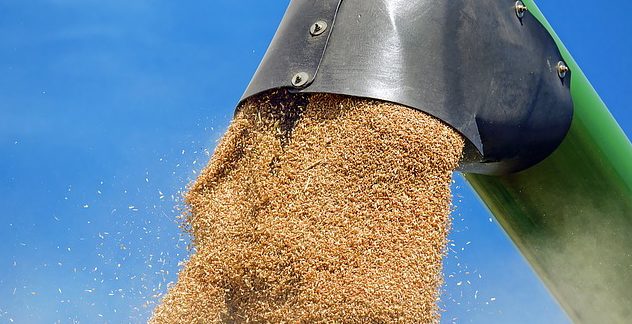May 24, 2017
Following a period of reorganization undertaken by Glencore to reduce its $30 billion debt load by $10 billion during which the company sold a 40 percent stake in its agriculture business to Canada’s largest pension fund, Canada Pension Plan Investment Board (CPPIB) for $2.5 billion, and then sold an additional 9.9 percent stake for a reported estimated $625 million, Glencore has approached Bunge with an informal takeover scheme.
Confirming the move, Glencore stated in a release that “Glencore Agriculture Limited has made an informal approach to Bunge Limited regarding a possible consensual business combination,” but qualified the statement saying that “discussions may or may not materialise [sic] and there is no certainty that any transaction will occur.”
Reuters reports that anonymous sources state that previous talks between the two companies focused on a possible collaboration between the two sides.
Multiple years of low commodity prices and bumper crops have put pressure on the world’s top grain traders, driving players to seek out consolidation as a means of riding out market conditions – similar to the fallout being seen among the world’s top agri-chem and seed companies. Germany’s Bayer is working toward its takeover of Monsanto, while ChemChina is closing on its $43 billion takeover of Syngenta, and Dow Chemical and DuPont are advancing toward completing the merging of their companies.
The top four global grain traders, known as the ABCDs – Archer Daniels Midland, Bunge, Cargill, and Louis Dreyfus are under added pressure from growing competition coming from new quarters, such as China’s COFCO which acquired Noble Agri and Nidera, and Japan’s Marubeni which acquired U.S.-based Gavilon in 2012.
Bunge’s CEO Soren Schroder agrees that the grain industry is set to see a wave of consolidation, stating, “It is very clear that there are too many, too many trying to do the same thing with a small margin,” according to Fox Business News.
If the talks between Glencore and Bunge result in a deal, it would launch Switzerland’s Glencore, which already has operations in 35 countries, 274 storage facilities, 36 processing facilities, 23 ports, and agricultural business revenue of $21.9 billion last year, into the U.S. market, while also strengthening Glencore’s dominance in markets across the Americas and beyond with assets in Brazil, Canada, Russia, and Australia.
Philippe de Lapérouse, managing director of agribusiness consultancy, events, and media company HighQuest Group LLC and a former senior executive at Bunge, told Bloomberg News, “The U.S. has to be part of the portfolio of a global grain trader. Eventually, you need the U.S. corn, soybean, and wheat.”
A successful deal with Bunge, which currently has a market capitalization of $11. 4 billion, would achieve just this for Glencore. As the world’s largest oilseed crusher, Bunge owns port facilities across South and North America, the Black Sea and Australia, and a key network of elevators along the Mississippi River.
Be that as it may, Bunge has pulled back from any rumors of talks between itself and Glencore, reports Reuters, stating it was “committed to continuing to execute its global agri-foods strategy and pursuing opportunities for driving growth and value creation.”
-Lynda Kiernan
Lynda Kiernan is Editor with GAI Media and daily contributor to GAI News. If you would like to submit a contribution for consideration, please contact Ms. Kiernan at lkiernan@globalaginvesting.com

Let GAI News inform your engagement in the agriculture sector.
GAI News provides crucial and timely news and insight to help you stay ahead of critical agricultural trends through free delivery of two weekly newsletters, Ag Investing Weekly and AgTech Intel.




